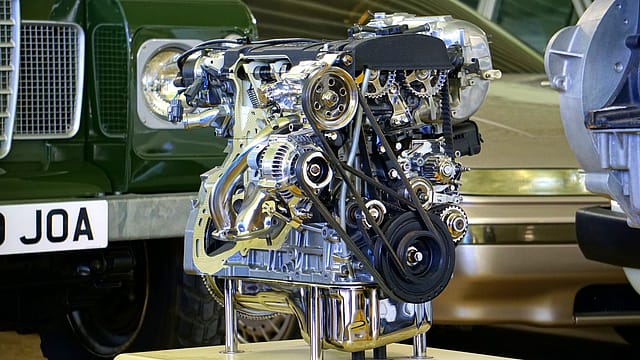The industry is losing ₹1,000 crore every day due to Covid-19 lockdown: ACMA
ADVERTISEMENT

The auto component industry, which contributes 2.3% to India’s GDP and employs over 50 lakh people, has been dealing with slowdown blues way before the economic standstill caused by the Covid-19 lockdown. The Automotive Component Manufacturers Association (ACMA), an industry body, says members in tier 2 and tier 3 areas are in dire straits on the cash-flow front that many are on the brink of closure.
Vinnie Mehta, director general, ACMA, spoke to Fortune India about the measures that the industry body has taken and its thoughts about a revival. It has urged members to pay salaries and not to announce layoffs. Edited excerpts from the interview:
How much has the lockdown affected the components industry?
This is an unprecedented situation and more than anything, our first priority has been to secure the wellbeing of all our people. We sent out an advisory to all our members saying that none of the employees are to be laid off, both permanent and contractual ones. We also issued an advisory that everyone must pay salaries for the month of March, and way before month-end. So… more than 100,000 people have already been paid by about 100 odd companies. But the biggest challenge is on the cash flow. Working capital crunch is what is staring at us because production is completely at a standstill and we estimate that we’re losing ₹1,000-1,200 crores every single day.
How difficult would it be to bounce back from this?
It would be difficult to sustain beyond March. April and May would be very tough for the industry to come back on its feet because we don't know how the situation is going to pan out. The auto components industry has been suffering for more than a year now with our month-on-month sales also plummeting. And then we have a BS IV to VI transition happening. What is also very interesting is that people have come together, they are also sharing best practices on conserving working capital and we’re also taking guidance from the OEMs (original equipment manufacturers) how to go about it. You have to be in water to know whether you can swim or not. It’s like that. Every day is a test.
Has the recent movement of labour affected you?
It is very worrisome is that we employ a lot of contractual labour and migrant labour. Unfortunately, they have left. Capital crunch, with a very uncertain future and labour not being there, we do not know again how things will pan out. We need to see when we open up.
What will change for the industry when things slowly start getting back to normal?
If you look at trends like shared mobility, now with social distancing will that last? It is too early to say how the transformation of the industry will happen. Because we were on the brink of a certain transformation and then that “disruption got disrupted”. I’m not saying that mobility will go away. It will surely be there because there is a need for moving from point A to point B—whether it’s electric or ICE engine mobility or any other kind of technology. But some aspects of mobility will change.
What about cutting our dependence on China for raw materials?
When there was the U.S-China trade spat, there was an opportunity for us to attract more investments. We failed to do so. Now here is another opportunity but again let’s see how we capitalise on it. We as an industry need to work with the government to make sure it happens because China is a way ahead of us in recovery. When India starts coming back to normalcy, China would be 100% normal and again they would be in a better position to flood the world. But localisation is a great opportunity for us going forward so that we don't put all our eggs in one basket. Dependence on any one geography is not good.
How is ACMA contributing to the battle against Covid-19?
We have set up three task forces. One interfaces with the government and the customers. The second is for our social work like running community kitchens. The third is to channelise specific functions like making sanitizers, masks, ventilators. We are synergising with big associations like the CII (Confederation of Indian Industry).